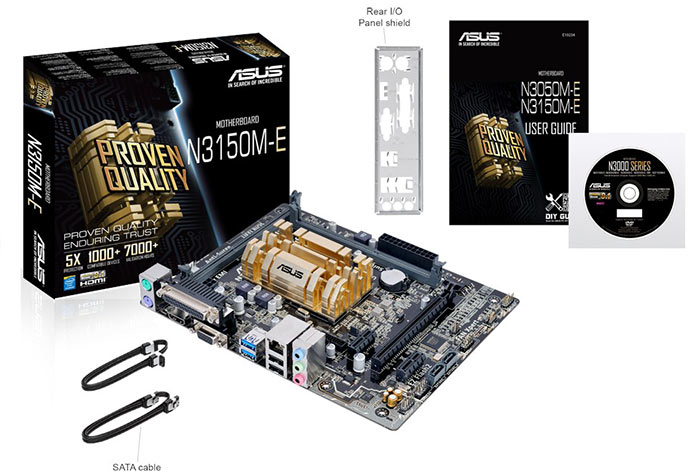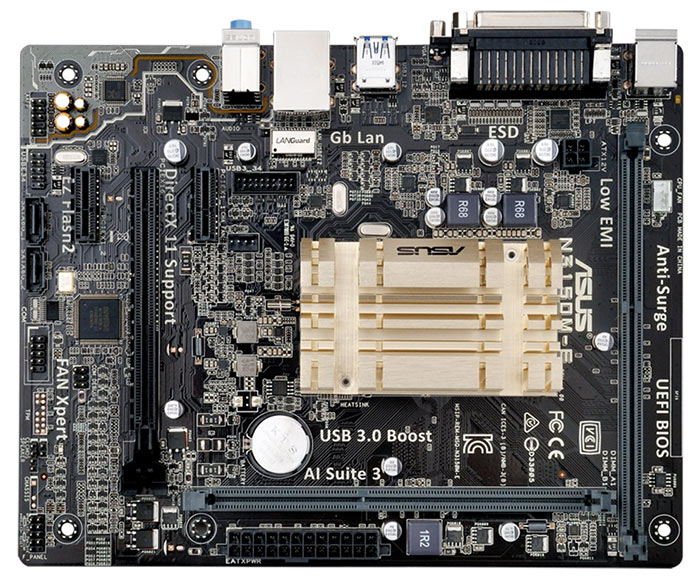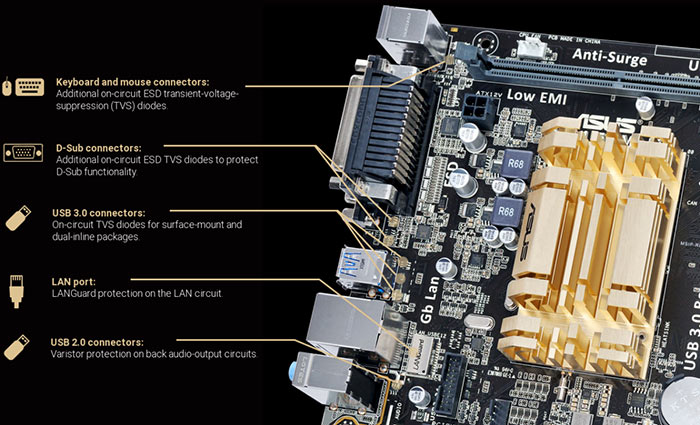ASUS has quietly launched a new motherboard which comes equipped with a fanless Intel Braswell quad-core processor. The ASUS N3150M-E micro-ATX Braswell motherboard has an Intel Celeron Quad-Core N3150 SoC processor on board. The 14nm Intel chip is based upon the 'Airmont' architecture runs at 1.6GHz (2.08GHz burst) and is rated at just 6W TDP.

Most of these Braswell Celeron chips are destined for portable systems like tablets so it's interesting to see them used in barebones desktop products. However, regular HEXUS readers will remember that MSI has already launched a trio of Braswell motherboards, incorporating various new Celeron processors, the mini-ITX MSI ECO range.

The ASUS N3150M-E offers the following key specifications in addition to the Intel Braswell SoC:
- Graphics: Intel Gen8 HD graphics with 12 execution units and 320MHz base / 600MHz boost frequency. Maximum shared memory of 512MB
- Memory: 2 x UDIMM slots (DDR3 1600/1066 MHz)
- Internal expansion: 1 x PCIe 2.0 x16 (x1 mode), 2 x PCIe 2.0 x1, 2 x SATA 6Gb/s connectors
- Internal connectors: 2x USB 2.0 ports, CPU and chassis fans connectors, front panel audio, system speaker, 24-pin ATX and 4-pin CPU power.
- Ports and connectivity: 2 x USB 3.0, 2 x USB 2.0, 1 x HDMI, 1 x VGA, 1 x Parallel port, 2 x PS/2 Mouse & Keyboard, 1 x Gigabit Ethernet (Realtek), 3 x audio
- BIOS: 64 Mb Flash ROM, UEFI AMI BIOS, PnP, DMI2.0, WfM2.0, SM BIOS 2.8, ACPI 5.0, Multi-language BIOS
- Size: mATX Form Factor 8.9 inch x 7.0 inch ( 22.6 cm x 17.8 cm )
- OS support: Windows 8.1 64-bit

ASUS provides a suite of 'special features' including protection for LAN, DRAM, ESD, quality capacitors and a stainless steel back I/O panel. It implements USB 3.0 Boost for "170% faster transfer speeds than traditional USB 3.0". The highest resolution graphics available are via HDMI, 3840 x 2160 @ 30 Hz. The VGA port can output 1920 x 1200 @ 60 Hz.

For a small low power system the ASUS N3150M-E appears to offer a lot of expansion, configuration and connectivity options. According to FanlessTech the N3150M-E costs 85 Euros and a similar motherboard equipped with a dual-core Celeron N3050 costs 75 Euros. We don't have any information regarding when these motherboards with integrated Braswell SoCs will appear at retailers.













